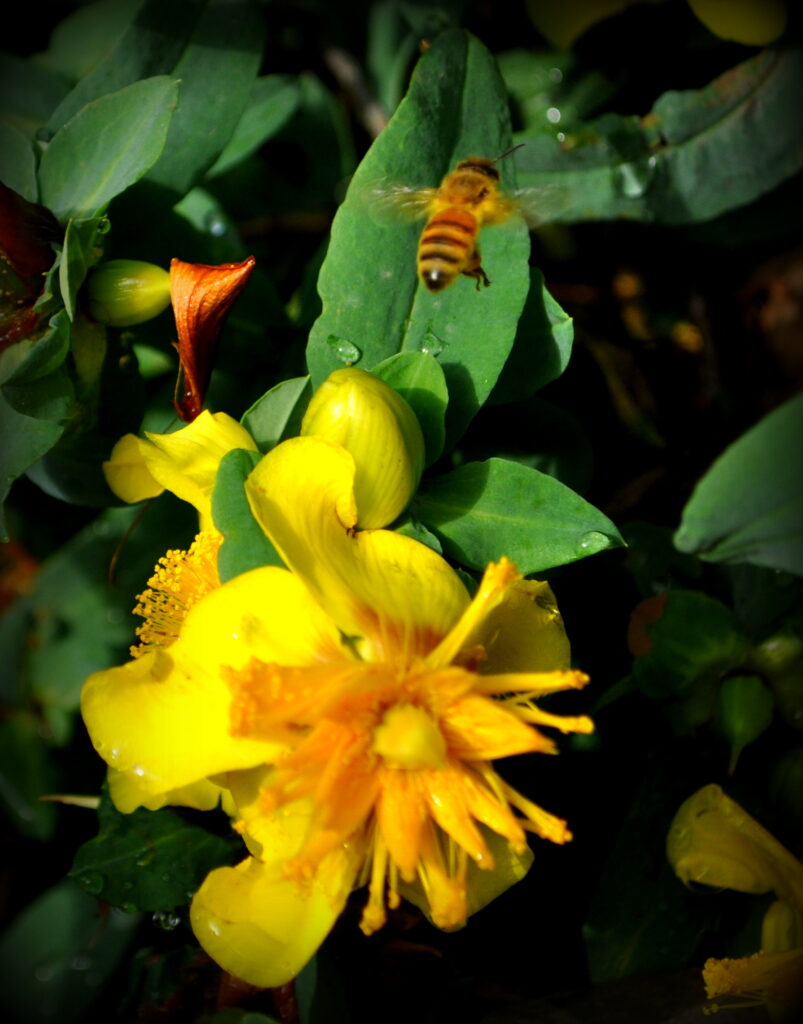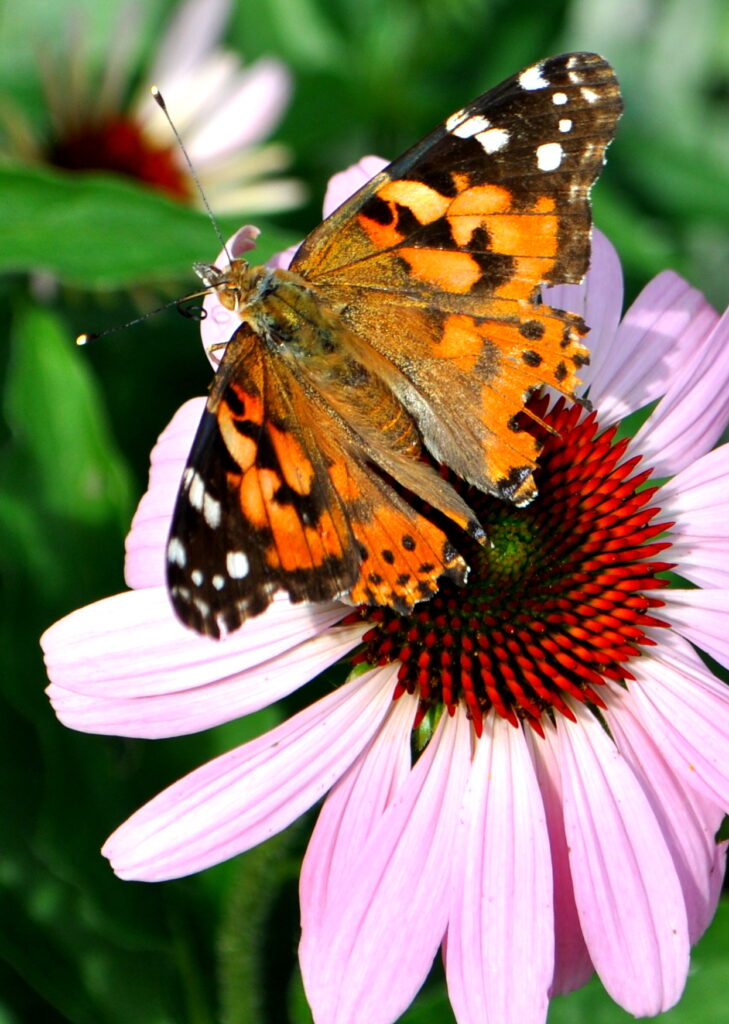

In recent years, there has been a growing awareness of the critical role that pollinators play in our ecosystems. Bees, butterflies, birds, and other pollinating insects are essential for the health of our gardens and the production of food crops. As a sustainable landscaping company, we are passionate about promoting practices that support these vital creatures. One of the most effective ways to do this is by incorporating pollinator plants into your garden. Here are some of the key benefits:
PROVIDE FOOD
Pollinator plants are an excellent source of nectar and pollen, which are crucial food sources for many insects and birds. By planting a variety of flowers that bloom at different times of the year, you can ensure that there is always something in bloom to provide nourishment for pollinators. Native plants are especially beneficial because they have evolved alongside local pollinators and are ideally suited to meet their dietary needs.
PROVIDE WATER SOURCES
In addition to food, pollinators also need water to thrive. Small, shallow water features such as birdbaths, puddles, or even a shallow dish with water and pebbles can provide the necessary hydration for bees, butterflies, and other insects. Ensuring that these water sources are kept clean and replenished regularly can create a more inviting environment for pollinators.
PROVIDE SHELTER
Pollinators need places to rest and take shelter from the elements. Dense plantings, hedgerows, and even man-made structures like bee hotels can offer much-needed refuge. By providing a variety of habitats within your garden, you can cater to the needs of different pollinators, ensuring they have safe spaces to live and reproduce.
SAFEGUARD POLLINATOR HABITAT
Creating a garden that supports pollinators goes beyond just planting flowers. It involves creating a balanced ecosystem that reduces the need for chemical pesticides and fertilizers, which can harm pollinators. By adopting organic gardening practices and focusing on soil health, you can create a sustainable environment that not only supports pollinators but also promotes overall garden health.
Local Benefits in Boulder, Colorado
In Boulder, Colorado, the local climate and environment are particularly well-suited for a diverse range of pollinator plants. The region’s native flora is adapted to the local conditions and can thrive with minimal water and maintenance. Here are some tips for creating a pollinator-friendly garden in Boulder:
Conclusion
Adding pollinator plants to your garden is not only beneficial for the environment but also enhances the beauty and productivity of your garden. By providing food, water, shelter, and by safeguarding pollinator habitats, you can create a thriving ecosystem that supports these essential creatures. In Boulder, Colorado, where the local environment is well-suited for a diverse range of native plants, creating a pollinator-friendly garden is a rewarding and impactful way to contribute to the health of our planet.
For more information on how to create a sustainable, pollinator-friendly garden, contact our team at Wild Earth Gardens. We are dedicated to helping you build beautiful, sustainable landscapes that support our local ecosystems.